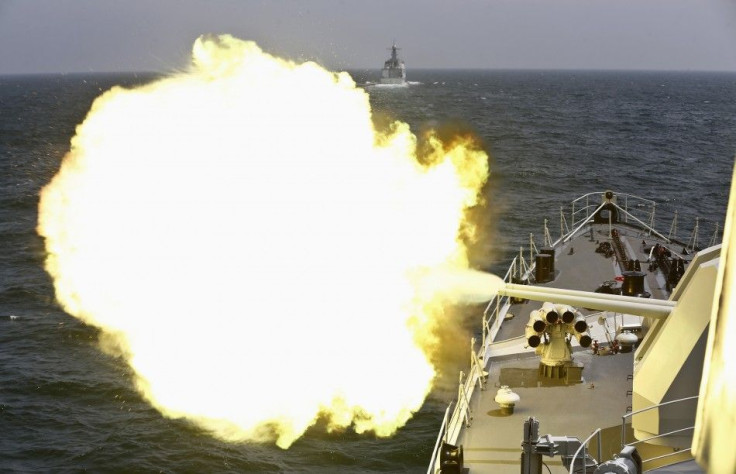China accuses US of militarising South China Sea

The open objections by the United States to China’s island building activities in South China Sea and related tensions have evoked a strong reaction from China. A senior official of China's Defense Ministry has accused the United States of "militarising" the South China Sea with its patrols and joint military drills that are seeking to fuel tensions in the disputed region. Defense spokesman Yang Yujun said Beijing is angry because of the forays of U.S. Navy and Air Force into its waters and its military alliance with the Philippines and holding of frequent military exercises in the region.
Creating Chaos
Yang said the actions of the US are creating risks of hazardous incidents in the air and sea. "The Chinese side expressed its serious concern over US activities to militarise the South China Sea region. Such actions by the US side would inevitably arouse suspicion from others that, does the US want nothing better than chaos in the region?" he asked.
Yang's remarks followed the comments of Admiral Harry Harris, head of the U.S. Pacific Command, who recently criticised the Chinese island-building spree in the disputed waters. He noted that in the last one year, China has stepped up its artificial island building activities in the South China Sea to the alarm of its neighbours.
At a news conference, Yang rejected the US claims and turned the tables on the US, charging it with ulterior motives. “The US disregards and distorts the facts and plays up China's military threat to sow discord between China and the littoral states in the South China Sea. We firmly oppose such actions," Yang said.
Besides China, Taiwan, Vietnam, Malaysia, Brunei and the Philippines have staked claims to whole or parts of the South China Sea. The region is a hub of wealth thanks to rich fishing grounds, mineral reserves and vital shipping lanes passing through it. Articulating the concerns of the US, admiral Harris spoke at a conference hosted by the Aspen Institute and warned China that its aggressive build-up is undermining international norms that supported global economy and political order. Noting that more than $5.3 trillion (AUD 7.3 trillion) of global sea-based trade hinges on unimpeded sea lanes passing through the South China Sea, Admiral Harris said that can be sustained only by the recognition of regional partners the need for honouring international law and freedom of navigation. Harris charged that the newly created islands are meant for China’s military use, as forward operating bases. But China asserts that the outposts have undefined military purposes, including help in maritime search and rescue, disaster relief and navigation.
In his speech, Harris made a comparison of China’s land reclamation with that of others in the region. He said the amount of land reclaimed by Vietnam, Malaysia, the Philippines and Taiwan in the past 45 years has been a meagre 100 acres, which is a fraction of 3,000 acres, reclaimed by China in the past 18 months.
Differences in US
Meanwhile, a report in Politico said some US naval commanders are out of sync with the Obama administration on handling South China Sea situation. The disagreement is mainly over sailing Navy ships into the disputed area of South China Sea.
According to the report, the military officials and some Congressional law makers want the U.S. to send warships within 12 nautical miles of the artificial islands and demonstrate that the U.S. rejects China’s territorial claims. Refusal to do so is being seen as an admission of conforming to China’s destabilising moves, which the U.S. allies in the region recalled as 'highly threatening.' “We continue to restrict our Navy from operating within a 12 nautical mile zone of China’s reclaimed islands, a dangerous mistake that grants de facto recognition of China’s man-made sovereignty claims,” Sen. John McCain, chairman of the Armed Services Committee, told Politico.
(For feedback/comments, contact the writer at feedback@ibtimes.com.au)






